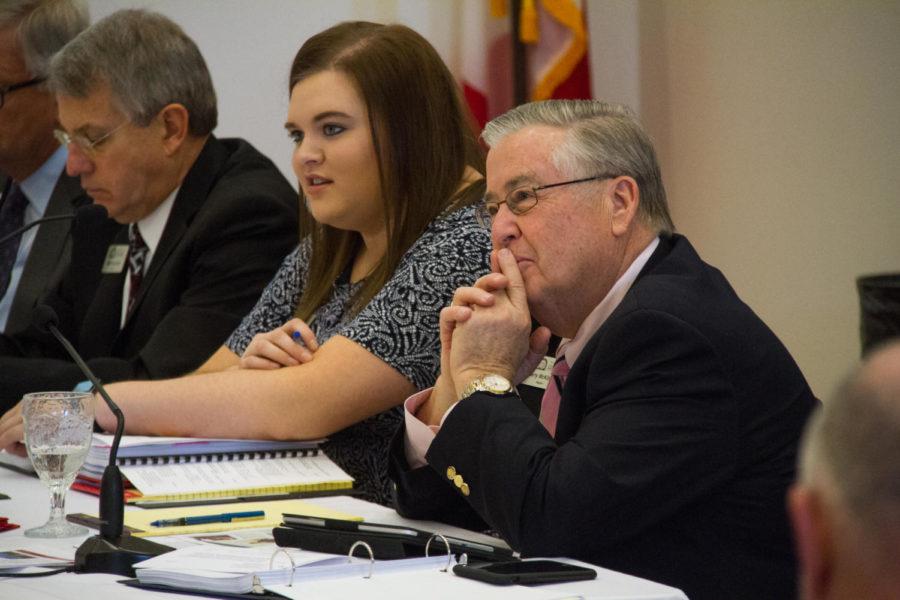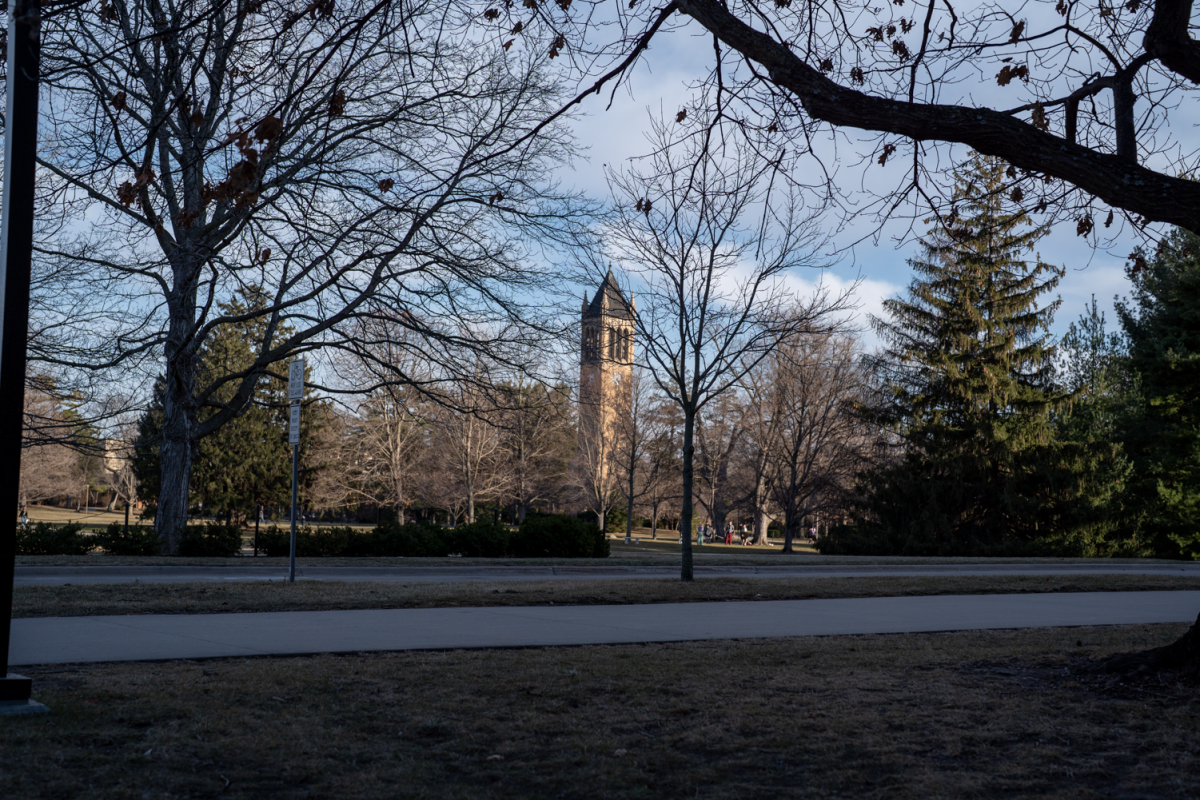Board of Regents discusses changes to Iowa State programs
Regent Larry McKibben listens to Iowa School for the Deaf superintendent Steve Gettel speak during a Board of Regents meeting, Feb. 23 in the Alumni Center.
April 19, 2017
The Iowa Board of Regents met Wednesday for the first of two meetings, discussing several academic changes to Iowa State as well as two recommended projects meant to repair 50-year-old systems.
During the Academic and Student Affairs Committee meeting, Iowa State brought forth several changes and additions to programs and research, which all received recommendation for approval during the Thursday meeting.
Among the biggest additions was a new Crop Engineering Center slated to be established in May. Iowa State Senior Vice President and Provost Jonathan Wickert presented the project as an outgrowth of President Steven Leath’s initiative to incorporate interdisciplinary research into Iowa State education.
The center will require no tuition dollars or state appropriations and will work to increase crop disease resistance, yield and food safety. Wickert sees the project as “important not for just Iowa State and Iowa but also the world.”
In a similar request, a newly proposed Nanovaccine Institute is scheduled to be established in the same month as the Crop Engineering Center, if approved.
Also an outgrowth of Leath’s interdisciplinary research initiative, the institute will focus on the creation and delivery of vaccines for human and animal patients, as well as create durable vaccines for third-world countries.
The institute will not be funded through tuition dollars or state appropriations but instead through grants and contracts.
Three changes to programs at Iowa State were recommended for approval, including the addition of a master’s in human computer interaction. This program will focus on the use of virtual reality, wearable computing and speech recognition.
The Women’s Studies program, now proposed to be called Women’s and Gender Studies, and the CESMEE Center, proposed to the Center for STEM Education, received a recommendation to receive name changes. Both instances were proposed in order to better align with current education standards across the country and better represent the content with the program/center.
Kate Gregory, Iowa State senior vice president for university services, discussed two upcoming summer projects to be initiated by the university to revamp two aging systems.
The first will involve a reconstruction of the section of Union Drive and Welch Road that runs directly through campus near Friley Hall and State gym.
“As enrollment has increased over the past years and more apartments have been built, the amount of students using these streets has increased, creating more traffic,” Gregory said.
The roads were originally created in the 1930s, with only two reconstruction projects occurring in the 1980s and in 2009. Originally rated between a 59 to 95 out of 100 on pavement quality in 2010, this number has dropped significantly to between 39 to 44, qualifying for a “poor” rating.
The road project, which costs $3.2 million, will be paid through institutional funds, utility funds and utility road funds.
A final improvement will aim to fix the chilled water piping system and storm sewer system under Bissell Road. With both systems being over 50 years old starting next year, the university will continue to experience operational issues until a fix is made.
At a total cost of $8.5 million, the construction will be paid for through both utility infrastructure funds and utility repair funds.















